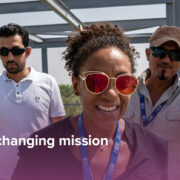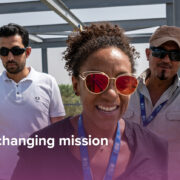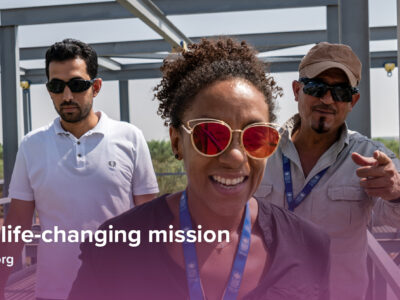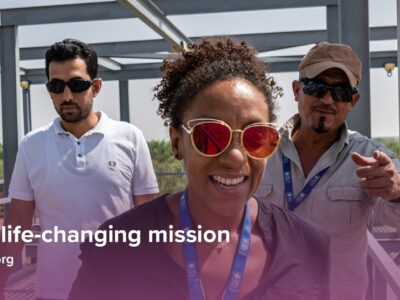- Objectives of the assignment
This evaluation will examine the project’s implementation process and peacebuilding results, drawing upon the project’s results framework as well as other monitoring data collected on the project outputs and outcomes as well as context. Evaluation questions are based on the OECD DAC evaluation criteria as well as PBF specific evaluation criteria, which have been adapted to the context.
Evaluators should take care to ensure that evaluation of the peacebuilding result is the main line of inquiry. Peacebuilding projects frequently employ approaches that work through thematic areas that overlap with development or humanitarian goals. An evaluation of peacebuilding projects, however, must include and not only reflection on progress within the thematic area but the degree to which such progress may or may not have contributed to addressing a relevant conflict factor.
The objectives of the evaluation are to:
- Assess the relevance of the intervention, strategy, and approach in the implementation of the women’s Peace and Security Agenda and achievement of women’s rights;
- Assess the effectiveness and efficiency of the project towards the achievement of impact results;
- Assess sustainability of the project;
- Assess the quality of the inter-agency coordination mechanisms that were established at country level;
- Determine whether human rights approach and gender equality principles are integrated adequately in the project. Assess the sustainability of the results and the intervention in advancing gender equality.
- Identify and validate important lessons learned, best practices and, strategies for replication and provide actionable recommendations for the design and implementation of future interventions.
- Identify and validate innovative approaches in all aspects of the project
- Document and analyze possible weaknesses in order to improve next steps of UN Women and OHCHR Liberia interventions in the area of women, peace, and security programming.
- Adequacy of risk management and mitigation strategy. Were major risks identified correctly and accounted for?
- Identify challenges encountered during project implementation and to put mechanisms in place to enhance future projects.
- Identify possible entry points to improve on women peace and security issues in Liberia.
- Methodology
The evaluation methodology will use mixed methods, including quantitative and qualitative data collection methods and analytical approaches to account for complexity of gender relations and to ensure participatory and inclusive processes that are culturally appropriate.
The detailed methodology for the evaluation will be developed, presented, and validated by UN Women and PBF HQ at the inception of the evaluation
Participatory and gender sensitive evaluation methodologies will support active participation of women and girls, men and boys benefiting from the project interventions.
The Consultant will undertake the following tasks, duties, and responsibilities:
- Review of Documents: The evaluators shall familiarize themselves with the programme through a review of relevant documents, including, but not be limited to: Joint programme work plans, annual progress reports, project procurement and financial reports, minutes of Project Management meetings, policy briefs, studies and any other technical reports, etc.
- Key Informant Interviews: The evaluator shall do a comprehensive stakeholder mapping in the beginning to identify the key informant interviewees. The evaluator shall carry out key informant interviews with major stakeholders. The interviews should be organized in a semi-structured format to include for instance. Focused Group Discussions; individual interviews; surveys; and/or participatory exercises with the community or individuals. The information from this assessment will be used as a baseline for Pro-poor Agenda for Prosperity and Development, (PAPD), UNSCDF and to facilitate the development of the Second phase of the NAP Women Peace and Security
- Field visits: During site visits, the evaluator will carry out interviews with the community, making sure that the perspective of the most vulnerable group is included in the consultation.
The evaluation team should take measures to ensure data quality, reliability and validity of data collection tools and methods and their responsiveness to gender equality and human rights; for example, the limitations of the sample (representativeness) should be stated clearly, and the data should be triangulated (cross-checked against other sources) to help ensure robust results.
Evaluation team is solely responsible for data collection, transcripts or other data analyses and processing work. Usage of online platforms and surveys as a complimentary and additional methodology is highly recommended. The evaluation team is expected to manage those platforms and to provide data analyses as defined in the Inception report.
The evaluation team should detail a plan on how protection of subjects and respect for confidentiality will be guaranteed. In addition, the evaluation team should develop a sampling frame (area and population represented, rationale for selection, mechanics of selection, limitations of the sample) and specify how it will address the diversity of stakeholders in the intervention
The evaluation should be conducted in accordance with UN Women evaluation Policy, evaluation Chapter of the Programme and Operations Manual (POM), the Global Evaluation Reports Assessment and Analysis System (GERAAS evaluation report quality checklist), the United Nations System-Wide Action Plan Evaluation Performance Indicators (UN-SWAP EP) and UN Women Evaluation handbook. All the documents will be provided by UN Women at the onset of the evaluation.
- Evaluation questions and criteria
The evaluation should be guided but not limited to the evaluation questions listed below. UN Women/ OHCHR could raise any other relevant issues that may emerge during the inception process.
Relevance: The extent to which the objectives of the Joint Programme are consistent with national evolving needs and priorities of the beneficiaries, partners, and stakeholders and are aligned with programme country government priorities as well as with UN Women and OHCHR policies and strategies.’
- Do the project expected results address needs of the target groups (e.g. Women in Peace Huts, etc.?)
- Are the activities and outputs of the project consistent with the overall global and national WPS priorities?
- To what extent has the project been catalytic in addressing some of the root causes of inequalities, especially those causing challenges for women?
- What were the catalytic effects on implementation of the NAP?
- What were the catalytic effects of the project in relation to the broader peacebuilding framework in Liberia?
- To what extent was the project a catalyst in scaling-up peacebuilding efforts via other agencies, donors?
- Timely intervention? How timely and urgent was the project vis-a-vis the sustaining peace context in Liberia? Did it effectively utilize windows of political opportunities?
- Are the activities and outputs of the project consistent with the intended outcomes or impacts? Do they address the problems identified? was Theory of change applied?
- How suitable for the context is the range of substantive areas in which the project is engaged (i.e. promoting gender equality, enhancing the capacity of the relevant institutions for effective implementation of Women, Peace and Security agenda)?
- If the substantive areas are deemed suitable for the context, how appropriate are they for the project to undertake?
- How does the project reflect and align to Liberia’s national plans on gender promotion as well as UNSCR 1325 and the UNSDCF?
- Were the programmatic strategies appropriate to address the identified needs of women in communities?
Effectiveness: The extent to which the project’s objectives were achieved or are expected/ likely to be achieved.
- What has been the progress made towards achievement of the expected outcomes and results? What results were achieved?
- To what extent are beneficiaries satisfied with the results? To what extent have capacities of relevant duty-bearers and rights-holders been strengthened?
- Does the project have effective monitoring mechanisms in place to measure progress towards achievement of results?
- Have the project’s organizational structures, managerial support and coordination mechanisms effectively supported the delivery of the project?
- To what extent are the project approaches and strategies innovative? What types of innovative practices have been introduced? What are the unsuccessful innovative practices?
- What contributions are participating UN agencies making towards the implementation of global norms and standards for gender equality and inclusive security?
- To what extent are beneficiaries satisfied with the results? And how have capacities of relevant duty-bearers and rights-holders been strengthened?
- Has the joint project-built synergies with other programmes being implemented at country level by United Nations, International NGOs and the Government of Liberia?
- To what extent was the monitoring data objectively used for management action and decision making?
- Have the project’s organizational structures, managerial support and coordination mechanisms effectively supported the delivery of the project?
- Did the project have effective monitoring mechanisms in place to measure progress towards results, how adaptably and rapidly did the projects react to changing country context?
- How appropriate are UNWOMEN and OHCHR’s staffing levels?
Efficiency: A measure of how economically resources / inputs (funds, expertise, time, etc.) were converted to results.
- Have resources been allocated strategically to achieve project outcomes?
- Were resources sufficient to enable achievement of the expected outputs?
- Have the outputs been delivered in a timely manner? what were the limitations?
- Is the joint project and its components cost-effective? Could activities and outputs have been delivered with fewer resources without comprising project quality?
- Were the project’s organizational structure, management and coordination mechanisms effective in terms of project implementation? Are there any recommendations for improvement?
- Has the joint nature of the project improved efficiency in terms of delivery, including reduced duplication, reduced burdens and transactional costs? If so, what factors have influenced this?
- Has the project facilitated building of synergies with other programmes being implemented at country level by United Nations, including International NGOs and the Government of Liberia?
- How effective are the project’s individual entity and joint monitoring mechanisms? How was data from monitoring used for management action and decision making?
- Were resources appropriately utilized to achieve project objectives?
- Was the project implemented without significant delays? If so, how did the project team mitigate its impact?
Sustainability: The likelihood of a continuation of project results after the intervention is completed or the probability of continued long-term benefits.
- What is the likelihood of that project results will be of use over the long-term? What is the likelihood that the results from the project will be maintained for a reasonably long period of time once the project ends?
- Which components of the project should be carried over into the next phase, and are there any recommendations for their improvement? Which positive/innovative approaches have been identified if any and how can they be replicated?
- How have partnerships (with governments, UN, donors, NGOs, civil society organizations, religious leaders, the media) been established to foster sustainability of results?
- Did the intervention design include an appropriate sustainability and exit strategy (including promoting national/ local ownership, use of local capacity, etc.) to support positive changes in Gender Equality and Human Rights after the end of the intervention? To what extent were stakeholders involved in the preparation of the strategy?
- How was the sustainability strategy planned and has been proven successful?
- To what extent have project’s exit strategies been well planned and successful?
Gender Equality and Human Rights (GE&HR)
- To what extent has gender and human rights considerations been integrated into the project design and implementation?
- To what extent are GE&HR a priority in the overall intervention budget?
- Were there any constraints or facilitators (e.g. political, practical, bureaucratic) to addressing GE&HR issues during implementation? What level of effort was made to overcome these challenges?
- Were the processes and activities implemented during the intervention free from discrimination to all stakeholders?
The questions above are a suggestion and could be changed during the inception phase in consultation with members of the Reference Group and UN Agencies. It is expected that the evaluation team will develop an evaluation matrix, which will relate to the above questions, the areas they refer to, the criteria for evaluating them, the indicators and the means of verification. The questions will be revised by a Team of Evaluators during the Inception Phase.
The evaluation will be gender sensitive and human rights focused. Considering the mandates to incorporate human rights and gender equality in all UN work and the UN Women Evaluation Policy, which promotes the integration of women’s rights and gender equality principles into evaluation, these dimensions will require special attention for this evaluation and hence will be considered under each evaluation criteria.
The Independent Evaluation Office (IEO) is the custodian of UN Women’s evaluation function, which is governed by an Evaluation Policy. The IEO has developed the GERAAS, which has adapted United Nations Evaluation Group (UNEG) Standards for Evaluation in the UN System to guide evaluation managers and evaluators. All evaluations in UN Women are annually assessed against the framework adopted in GERAAS and hence the consultants should be familiar with GERAAS quality standards.
All evaluations conducted by UN Women are publicly available on the Global Accountability and Tracking of Evaluation (GATE) system along with their management responses.
- Scope of work and tasks
Task 1. Desk review and inception meeting
The evaluator will attend a virtual inception meeting where orientation on programme objectives will be offered, as well as on progress made. At this stage of the evaluation, the evaluator will have the chance to speak with UN Women, OHCHR staff, and UN Peacebuilding Fund Secretariat in Liberia as well as with selected stakeholder representatives. The evaluator will be given key programme documents for review and the Terms of Reference of the Evaluation. The inception meeting, desk review of key programme documents (e.g. programme documentation, contracts, agreements, progress reports, monitoring reports, etc.).
Task 2. Develop an Inception report.
The draft Inception Report should be submitted and should include a description of methodology, and evaluation design matrix. The inception report will be reviewed by the Reference Group and will be finalized based on the feedback. The Inception Report should include final evaluation questions, and stakeholders to be interviewed.
Task 3: Data collection (mixed methods).
Data collection will include both in-country, face-to-face and/or virtual (telephone, video conferencing) interviews. It will only start after the approval of the Inception Report by PBF and UN Agencies implementing the project.
Task 4: Sharing of preliminary findings.
The evaluator will share preliminary findings and recommendations with the Reference Group at the end of the field visit. Prior to this presentation, the Consultant will share the initial findings and recommendations with the UN Women.
Task 5: Data analysis and synthesis.
Data should be analyzed, and the analysis framework should be clearly explained in the report. The Consultant will draw conclusions and recommendations from data and should be supported by evidence.
Task 6: Sharing of draft report.
The evaluator will finalize the draft report. UN Women and PBF HQ will review the report as part of quality assurance and the Consultant will share with the reference group for their feedback.
Task 7: Finalization of the Report.
The report should be finalized based on feedback from UN Women, PBF HQ and the Reference Group. UN Women will present the draft report to stakeholders in a validation meeting. Recommendations will be drafted for Management Response.
- Duration of the assignment
IX. Stakeholder Participation
The evaluators are expected to discuss during the Inception phase how the process will ensure participation of stakeholders at all stages, with a specific emphasis on rights holders and their representatives. Their participation is crucial at each stage as follows: 1) Design; 2) Consultation of stakeholders; 3) Stakeholders as data collectors; 4) Interpretation and 5) Reporting, dissemination, and usage of data. The list of stakeholders can be found in section III. Furthermore, a stakeholder analysis should be provided in the inception report.
It is important to pay particular attention to the participation of rights holders—particularly women in Peace Huts and rural women. The evaluators are expected to validate findings through engagement with stakeholders at stakeholder workshops, debriefings, or other forms of engagement.
- Expected Deliverables
The National Consultant will produce the following deliverables:
|
# |
Deliverables |
Estimative number of days |
Indicative Deadline |
|
1 |
Final Inception Report. The inception report should capture relevant information such as proposed methods; proposed sources of data; and data collection procedures. The inception report should also include an evaluation matrix, proposed schedule of tasks, activities and deliverables and should also contain background information[1]. |
15 days |
5th January 2021 |
|
2 |
A briefing and report with preliminary findings and Power Point Presentation of preliminary findings presented to the Reference Group. |
20 days |
25th January 2022 |
|
3 |
Interim Evaluation Report. Report structure should follow UNEG evaluation reporting guidance.
|
10 days |
5th January 2022 |
|
Power point Presentation of interim report. A presentation of draft report should be done at a validation workshop facilitated by the National Consultant.
|
1 day |
10th February 2022 |
|
|
5 |
Final Evaluation Report. The final report will be structured as follows:
Annexes:
The final report should be submitted in both hard and in soft copies
|
6 days |
28th February 2022 |
All the deliverables, including annexes, notes and reports should be submitted in writing in English.
- Management of evaluation
The Evaluation Manager (EM), the Evaluation Reference Group (ERF) and Evaluation Management Group (EMG) will quality assure the evaluation report on the basis of UNEG standards and norms, UN SWAP Evaluation Performance Indicator and GERAAS meta-evaluation criteria.
To enhance the quality of this evaluation, UN Women Regional Evaluation specialist, OHCHR and PBF Secretariat/PBSO will provide:
- Feedback to the draft inception and evaluation report;
- Recommendations on how to improve the quality of the final inception/evaluation report.
The Evaluation Manager (EM) will review feedback and recommendations from the Regional Evaluation Specialist and share with the team leader, who is expected to use them to finalize the inception/ evaluation report.
The Evaluation Reference Group and Evaluation Management Group will be established and will participate in the evaluation process throughout the whole process.
The Evaluation Management Group comprised of the UN Women Evaluation Manager (Liberia), Regional Evaluation Specialists from UN Women, PBF Secretariat M&E Analyst, and Project Focal Points from OHCHR, will provide oversight and ensure quality control. The EMG will provide substantive inputs throughout the evaluation process. Specific responsibilities will include the following: Ensure oversight of the evaluation methodology, review draft reports; ensure that the deliverables are of quality; participate in meetings as a key informant interviewees; manage the evaluation by requesting progress updates on the implementation of the evaluation workplan, approve deliverables, organize meetings with key stakeholders, and identify strategic opportunities for sharing and learning. The ultimate responsibility for this evaluation rests with UN Women. The Evaluation will comply with UN Women’s Evaluation Policy.
Evaluation Management Group will be established to oversee the evaluation process, make key decisions and quality assurance of deliverables. It will be chaired by the UN Women Evaluation Manager who will provide final approval of the deliverables after clearance by the Regional Specialists.
The Evaluation Reference Group is an integral part of the evaluation management structure and is established to facilitate the participation of relevant stakeholders in the evaluation process, with a view to increase the chances that the evaluation results will be used, enhance quality, clarify roles and responsibilities and prevent void real conflict of interest
The ERG will be composed of individuals from Peacebuilding Support Office, Government line ministries ( ie MGCSP, MIA/PBO) includingrepresentatives from the two implementing UN Agencies, Civil Society, Women’s organizations and the Peacebuilding Fund Secretariat. The ERG will be engaged throughout the whole evaluation process and will review the draft Inception report and evaluation report. The ERG will be chaired by the Evaluation Manager.
More details on roles and responsibilities of the ERG and EMG can be found in Annex 2. Management Structure and Responsibilities.
- Inputs
- UN Women will provide the Consultant with background materials relevant to the assignment
- The Consultant is expected to work using his/ her own computer.
- UN Women will provide the evaluation team with necessary logistical support, transportation, materials (office supplies) and office space.
- Performance evaluation:
Consultant’s performance will be evaluated based on timeliness, responsibility, initiative, communication, accuracy, and quality of the products delivered.
Evaluation Team composition, skills and experiences
The evaluation team will be comprised of two evaluation experts: The Evaluation Team Leader (International Consultant) and Evaluation Team Member (National Consultant). The Evaluation Team Leader will have the overall evaluation responsibility and accountability for the report writing and data analyses. The independent consultants or team will report to and be managed by UN Women.
[1] UN Women guidance on inception reports is available.











Comments